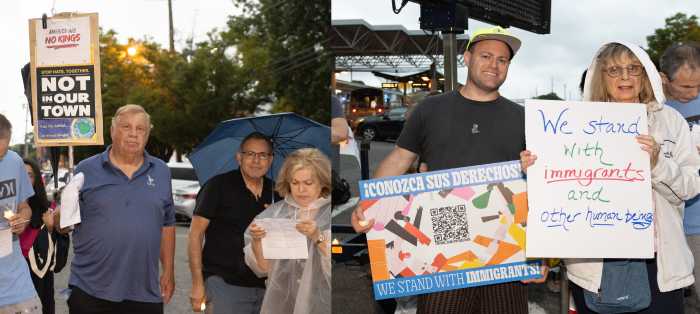Farewell, USPS
When my mail failed to materialize on Saturday, July 27, I thought August 10, the day Saturday delivery was supposed to stop, had arrived two weeks early. I still have not received it and my neighbors never received theirs either. I thought of the almost scriptural sentiment engraved on the magnificent James Farley post office building on 8th Avenue in New York City:
Neither snow nor rain nor heat nor gloom of night stays these carriers from the swift completion of their appointed rounds.
These elevating, heroic words are derived from the most famous translation of the work of the ancient Greek historian Herodotus describing the Persian system of mounted postal carriers around 500 B.C. It’s quite a motto; a ringing endorsement of dedication and efficiency. But looking outside on Saturday, July 27, I detected no snow, rain or even gloom of night. The weather that day was delightful and as for the gloom of night, au contraire, it sparkled with a luminescent glow. So what happened to the mail? Who knows! And that includes the Post office, which is still clueless about where the mail might have gone. Just another kerfuffle in what has been a long line of mishaps.
Meanwhile, I received mail on Aug. 10 as the post office got a reprieve on Saturday delivery. A pardon that was most undeserved and a step back instead of forward. Revenue in the post office has been declining for years and stoppage of mail on Saturdays, though inconvenient, was a commitment toward some measure of financial stability. The world has changed but the post office has not changed with it. With the Internet and electronic mail, business is often taken care of online. Who writes a letter today?
The United States Postal Service is feeling the pressure everywhere — most anachronistic institutions do. Today, the USPS is weighed down by grasping union contracts that strangled innovation and slashed initiative. Making cuts among personnel or streamlining operations was almost unheard of. The history of delivering mail was a serenade of romance and nostalgia. When one first starts to receive mail it is tantamount to a rite of passage, a sign of maturity, you’ve arrived and the world is interested in you. But that time is now a specter of a vanishing past; today the bones of its Brobdingnagian infrastructure creaks with arthritis.
One congressman argued that the post office should be saved because it’s an indelible part of our American heritage. Well, that is a consideration but one that should not
buffalo us into surrendering the economical for the nostalgic. The post office and America were born together, tracing its roots to 1775, the year when the world heard the first shots at Lexington and Concord at the start of the American Revolution. The Continental Congress appointed Benjamin Franklin, that quintessential American, as the first Postmaster General. A dozen years later in Article 1, section 8, clause 7 the U.S. Constitution granted Congress the power to establish post offices. In 1860, one of the great adventures of the American West unfolded with the Pony Express, which delivered mail from St. Joseph, Missouri across the Great Plains, over the Rocky Mountains through Sierra, Nevada to Sacramento, California by horseback using relay stations.
That delivery was done in record time, beating the old record by an incredible 10 days. Fourteen-year-old William F. Cody, later renowned as Buffalo Bill, was one of those riders. The Pony Express had a touch of the excitement of Charles Lindbergh’s solo flight over the Atlantic, one man challenging the vastness of nature and confronting all its dangers to reach a destination, although in this case it was a series of pilots riding an appointed distance. Wells Fargo still uses the Pony Express Logo for its armored car service. But all this pales before the now unwieldy institution fraught with inefficiencies and superfluities. The Post office seethes more than it operates and “going postal” is now a euphemism for insanity. Every day the post office more and more resembles a sepulchre, while the panegyrics of its apologists wax mournfully over its inevitable and ignominious demise.
Ronald Reagan once quipped that a Federal bureaucracy is the nearest thing on earth to eternal life. Perhaps, but the post office has been physically rent, the crust of life crumbles away, its coagulated blood frozen in its weathered veins. In truth, even from the outset, its prospects were not entirely blinded by hopes for the future. Thomas Jefferson believed the post office would turn into an abyss of patronage and corruption. It has, and the subsequent passage of the dubiously named postal reform law of 1851 that gave the post office access to U.S. Treasury dollars sealed its unhappy fate. There has been a calamitous descent from a self-sustaining enterprise to another government funded program subsidized by the taxpayers.
It’s time to privatize the post office; paper bills and bank statements have gone the way of the telegraph and the rotary phone. The government could easily award competitive contracts to private firms that could make the delivery of mail more efficient and cost effective. It’s strange how the modern world so readily surrenders the values that defined and shaped our culture and civilization but so stubbornly holds on to the continuing frictions that burden and hinder our progress. It’s time to let go of the past and say farewell to the United States Post office.






























